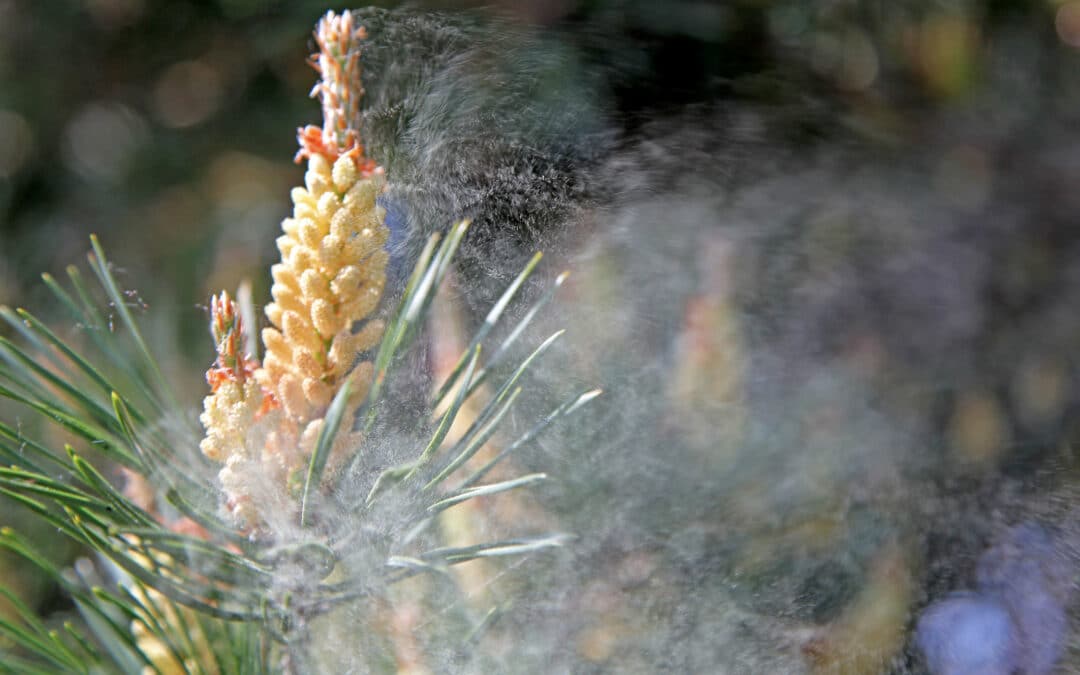Spring is here. For many of us, it’s a time of renewal, when the flowers and trees begin blooming, and the grass and weeds start growing, but if you suffer from seasonal allergies, this may not be your favorite time of the year. Seasonal allergies, called hay fever or allergic rhinitis, can produce uncomfortable symptoms like runny nose, sneezing, congestion, itchy eyes, headaches, fatigue, and brain fog. This is caused by pollen from trees, flowers, and grass and mold spores from tiny fungi finding their way into the mucus membranes of your respiratory tract, triggering an immune reaction.
Why do Some People Have Seasonal Allergies?
There are several theories for why some people have allergies and others don’t.
Seasonal Allergies Tend to Run in Families
If you have at least one parent with seasonal allergies, you may have them, too. While allergies are more common in childhood, they can develop later in life, especially after an illness or pregnancy. Genetic theory suggests that there could be errors in a gene that regulates the immune system.
Where You Grew Up Affects Allergy Potential
The geographical location where you grew up may play a role. If you were exposed to specific allergens as a child, you’re less likely to develop allergies as an adult. For example, if you grew up in the Southwestern United States (where it’s dry) but have moved to the East Coast (where pollen is abundant) as an adult, you may develop some seasonal allergies.
The Hygiene Hypothesis
The Hygiene Hypothesis supports that early exposure may be beneficial. Along with where you grew up, exposure to many microbes and allergens, instead of avoidance, is usually helpful for developing a healthy immune system. When the immune system isn’t regularly exposed to environmental allergens and microbes, it often overreacts by mounting defenses against harmless substances like pollen. This is why avoiding over-sanitizing yourself and your living space is essential. Remember when it was acceptable to play in the dirt?
Your Microbiome Matters
Changes in the microbiome may make allergies more common today. The human digestive tract and its beneficial microbial diversity can be the key to a healthy immune system. The biota alteration theory suggests that some factors deplete or change our microbiome. These factors include the use of medications, changes in food quality, toxins, cleaning products, and other chemicals. The digestive immune system plays a significant role in how our bodies respond to harmless allergens.
Foods That Can Help
To improve seasonal allergy symptoms, you can consume specific foods and nutrients that help stabilize mast cells, the cells responsible for overreacting by releasing histamine. Histamine is a substance that causes unpleasant symptoms like runny nose, sneezing, and itchy eyes. Here is a list of the top foods that may help reduce inflammation, boost the immune system, and ease some of the seasonal allergy symptoms.
Vitamin C-rich Foods Help Seasonal Allergies
Vitamin C acts as a natural antihistamine. It inhibits the cells that release histamine and helps break down the histamine the body has already released. Foods highest in vitamin C include guava (highest), bell peppers, kiwi, peaches, citrus (oranges, grapefruit, lemons), papaya, and broccoli.
Ginger
Ginger is a natural antihistamine and a potent anti-inflammatory. Try using fresh ginger in salads, stir-fried vegetables, soups, and smoothies. Ginger tea is also an easy way to enjoy its benefits.
Salmon
The omega-3 fatty acids in salmon and other oily fish can help stabilize cell membranes, making them less likely to release histamine. Some studies show that the omega-3 fatty acid EPA can lower the risk and improve tolerance to allergens.
Tomatoes
Tomatoes are high in vitamin C and a good source of lycopene, an antioxidant that helps reduce inflammation.
Onions
Onions are high in quercetin, a bioflavonoid antioxidant that acts as a natural antihistamine. Quercetin can also calm allergen-reactive cells and help reduce inflammation. Since onions are a prebiotic food, they can nourish the gut’s beneficial bacteria, improving gut health and microbial diversity. Raw red onions have the most quercetin.
Probiotic-rich Foods
Probiotics are good bacteria that live in your digestive tract. Studies show they can provide anti-allergic and anti-inflammatory benefits. Probiotic-rich foods include yogurt, kefir, sauerkraut, and other fermented foods.
As you support your immune system with beneficial foods, you may consider reducing inflammatory foods like wheat (gluten), dairy, sugar, and highly processed foods.
Other Helpful Tips
There are other ways to avoid excessive exposure to pollen during peak allergy season (March through May, depending on your location).
- Stay indoors on windy days. If you must go out, consider wearing a mask and sunglasses.
- Pollen is higher in the mornings, so you should go outdoors later in the day or after it rains.
- Consider indoor air filters for high-quality and effective filtration.
- Keep pets out of the bedroom, as their coats attract pollen. Brush them outdoors after each outing, and consider bathing them weekly.
- Saline nasal rinses may help improve symptoms. Some evidence shows that xylitol nasal rinses do a better job than saline for clearing nasal passages without irritation.
- Take a shower before bed to rinse pollen from your body.
Be prepared to welcome Spring early in pollen season. Check the daily pollen counts in your local area to know when the pollen is decreasing, and remain diligent with these tips.

